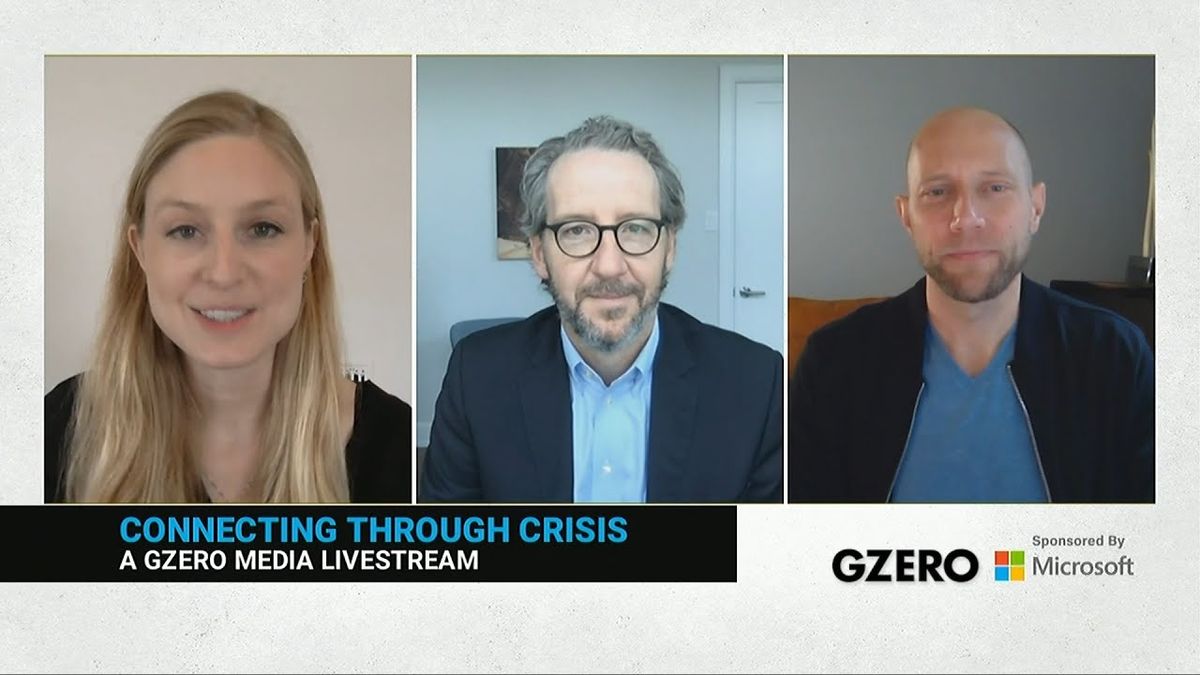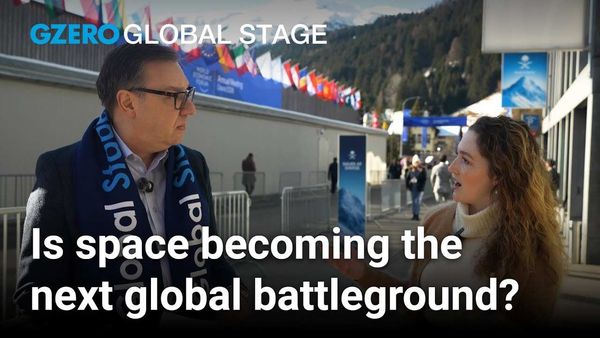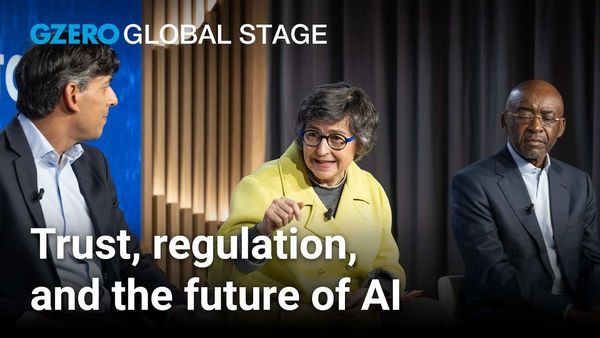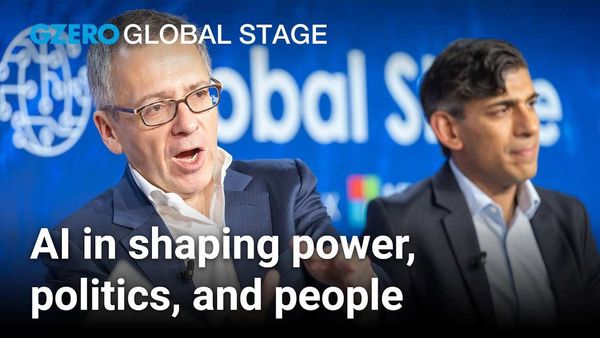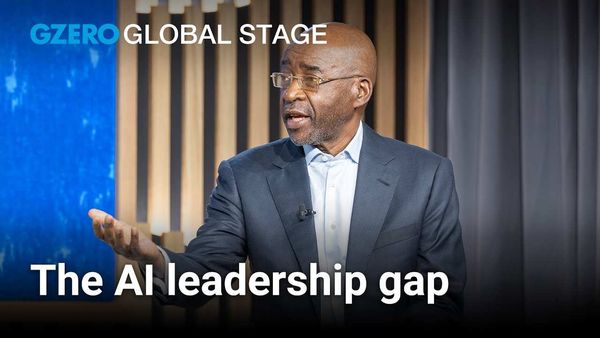On September 16, GZERO Media — in partnership with Microsoft and Eurasia Group — gathered global experts on climate and sustainability to address the future of "net zero" in a livestream panel.
Our panel for the discussion on Net Zero: Climate Ambition and Action included:
- Julia Pyper, host and producer of the Political Climate podcast (moderator)
- Gerald Butts, Vice Chairman & Senior Advisor, Eurasia Group
- Lucas Joppa, Chief Environmental Officer, Microsoft
- Rachel Kyte, Dean of The Fletcher School, Tufts University
- Mark Carney, Finance Adviser to the UK Prime Minister for COP 26 and UN Special Envoy for Climate Action and Finance
Select quotes from our panelists:
Gerald Butts on public-private collaboration on climate change
We can't be in opposing ditches throwing rotten tomatoes at each other about how to make progress on this problem. You're going to make a lot more progress, a lot more quickly, if large private sector actors are acting in concert with the UN and major governments around the world.
Lucas Joppa on fighting climate change amid COVID-19 recovery
We're recovering from an event, and if we don't take a more proactive offensive strategy to our engagement with climate change, then the number of things that we are going to have to recover from is just going to accelerate out of control.
Rachel Kyte on the new opportunity for net zero
The economic recession ... has knocked everybody back. We have to dress ourselves down, stare at this problem and work out how we are going to achieve two core goals: deeply decarbonize ... and use the opportunity to make recovery that works better for everybody.
Mark Carney on corporate ambitions to go net zero
As companies have plans, it becomes more and more obvious what problems need to be solved, and what technologies need to go from uneconomic to economic. A problem [turns into] a huge opportunity if the world's doing what everyone's saying they're going to do, which is to go to net zero — and that is a powerful dynamic.
This event was the first in a four-part livestream panel series about key issues facing the 75th United General Assembly. The next discussion, Crisis Response & Recovery: Reimagining while Rebuilding, will stream live on Wednesday, September 23, at 11 am ET and will include Microsoft President Brad Smith, and Ian Bremmer, president of Eurasia Group and GZERO Media.
See the schedule of upcoming events and watch our livestream panels here, and check out GZERO Media's special coverage of the 2020 edition of the world's largest diplomatic gathering, and the first ever virtual UNGA.

